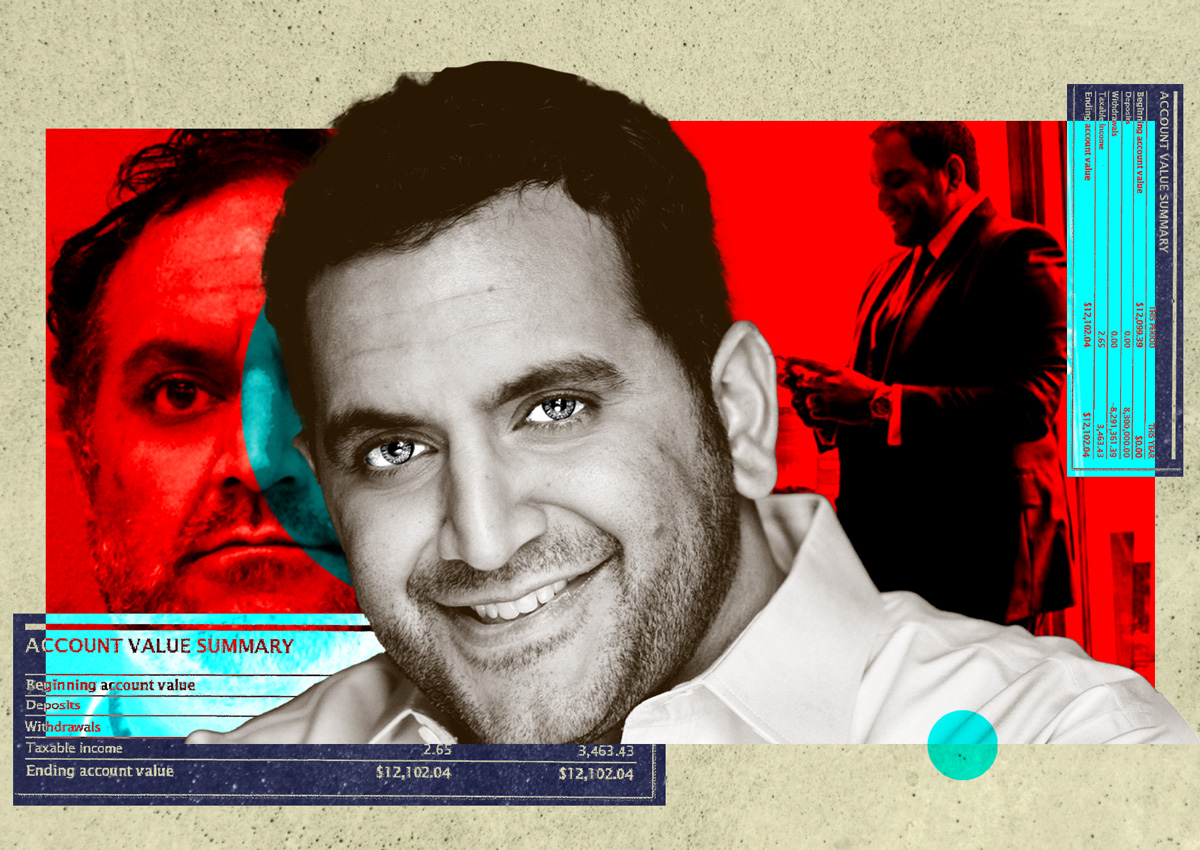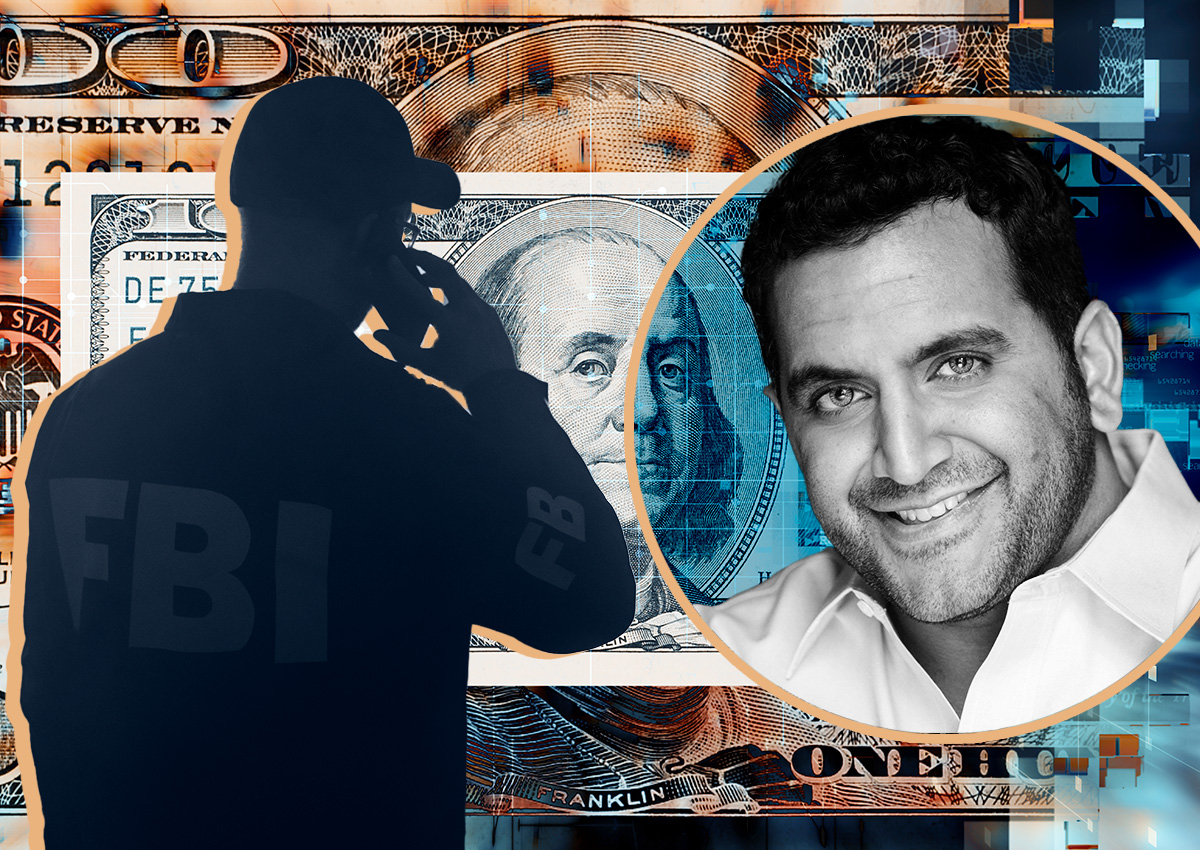In December 2019, Nate Paul was under siege.
The FBI had raided his home and office that August, casting an air of suspicion over his real estate empire. But the Austin real estate investor wasn’t completely lost, because he had friends in high places — namely, one friend in one very high place.
At that moment, that friend, Texas Attorney General Ken Paxton, sat in a car parked at the Highland Park Village Shopping Center in Dallas. Mark Penley, one of his top criminal law deputies, was in the car too, at his boss’ request.
“This is a friend of mine, Nate Paul, and he’s had some issues with the FBI and I want you to listen to his story and then let’s talk about it,” Paxton allegedly told Penley.
The two got on the phone with Paul, and as the real estate investor described the myriad ways he believed agents had abused their power in the raids, Penley grew confused.
“Where is the State interest in this? This is not something our office should be involved in,” he remembers thinking. It was not the last time he’d wonder that.
After the phone call in the car, Penley and other senior staffers were allegedly pulled into Paxton’s efforts to help Paul over the next nine months. The attorney general insisted that they assist, even as they came to believe Paul was a “crook.”
The above account is based on allegations levied by House impeachment managers in new filings in their case to remove and bar Paxton from office, spurred by claims of an improper relationship between the attorney general and Paul.
The managers filed these new details in their case after Paxton’s team filed two motions to dismiss the case in early August. The defense claimed impeachment managers had failed to present evidence of impeachable offenses, and that even if Paxton had committed those misdeeds, voters had evidently forgiven them when they re-elected him in 2022. The new filings, spread across 20 documents, include new allegations of misconduct that at times sound ripped from a pulp detective novel.
Tony Buzbee, an attorney for Paxton, denied the claims.
“Attorney General Ken Paxton has neither sought nor accepted a bribe, and the House Managers’ slanderous accusation to the contrary is meritless, no matter how many times they repeat it,” Buzbee said in a statement. “This whole thing has been nothing but a sham, and it should now end.”
Much has been made of Paul and Paxton’s relationship in the years since the FBI raided Paul’s home and office, and several details that have come out in that time reappeared in Paul’s federal indictment and Paxton’s impeachment charges. But the latest filings from House impeachment managers reveal particulars that paint many of those charges in the clearest detail yet.
They also set forth the most damning allegation against Paxton and Paul yet, claiming the attorney general engaged in a coverup and abused his power “to morph the Office of the Attorney General into Paul’s concierge law firm.”
“Basic and bizarre ways”
If you drove an Uber in 2020 and picked up a man by the name of “Dave P.,” you may have had the attorney general in your car.
According to the filings, Paul and Paxton shared an Uber account under that alias, allowing Paxton to surreptitiously visit his alleged mistress and Paul. Between August and October of that year, Paxton was picked up a block from his home using the Dave P. moniker and driven to his mistress’ or Paul’s home more than a dozen times, according to Uber records cited by the impeachment.
Paxton often ditched his security detail to meet up with Paul and used burner phones and secret email accounts, the impeachment alleges.
Paul also allegedly paid for renovations to Paxton’s home. While the attorney general wired a little over $12,000 to an LLC as proof that he had paid for them himself, the impeachment found that the LLC’s corporate officer was Raju “Raj” Sagiraju, a friend and employee of Paul.
Paxton and Paul met in the Spring and Summer of 2020 at least 20 times, often eating together as they talked about Paul’s wish to see the sealed warrant the FBI had used to search his properties, according to the documents. At one point, Paxton suggested he use an open records request to get it — critical because his office handles open records requests.
To help him get the information, Paxton spent months pressuring his senior staffers to aid Paul’s efforts. He set up a series of meetings with Paul, Paul’s lawyer and attorney general staffers, but as they proved unwilling to help, both Paul and Paxton grew frustrated, the documents claim.
Paxton’s director of Criminal Law Enforcement, David Maxwell, apparently distrusted Paul from the start. He told Paxton the investor was “a criminal” involved in “a Ponzi scheme that would make Billie Sol Estes envied,” the impeachment alleges.
They met anyway that July at Paxton’s insistence, and in a videotaped interview, Paul said federal agents had conspired to falsify warrants to search his home.
“General Paxton basically said that he could help me with this,” Paul said.
“That’s wrong,” Maxwell responded, “we can’t help you with this.”
The attorney general then arranged a meeting with Paul and Penley, the criminal law deputy from the Highland Park phone call. Penley told Paxton later that he felt the office should close the file on Paul’s complaint, and in a subsequent meeting with Paul, the investor allegedly “became irate” and Paxton left early.
In his notes from the meeting, Penley wrote “I don’t trust NP” and “ALL OF THIS IS HIGHLY SUSPICIOUS.”
With his staffers uninterested in helping Paul, Paxton turned to an attorney from outside the office.
Read more



The “special prosecutor”
After the raids, “Paul fixated on the people who had executed the search warrant,” the filings say, “demanding to know who they were, what they knew, and how they knew it.” Paxton sought to hire Brandon Cammack, a young lawyer who had only practiced for five years at the time.
Senior staffers refused to sign Cammack’s contract, but the attorney began issuing subpoenas for personal information about Paul’s enemies in a long-running lawsuit, agents involved in his federal criminal investigation, and the banks foreclosing on his properties.
The impeachment cites audio tapes of Cammack showing up in person to serve the subpoenas, with Paul’s personal lawyer in tow. Cammack allegedly represented himself as a “special prosecutor” as he delivered the subpoenas, but some of the financial institutions grew suspicious and contacted other members of the attorney general’s office.
Penley emailed Cammack a cease and desist when he learned about the subpoenas, and Cammack forwarded the demand to Paxton, according to the filings. He also allegedly sent the attorney general a request he had received from one of the banks asking for proof he had actually been hired by the attorney general’s office.
Later that day, Paxton texted the trustee of his blind trust and told him to wire payment to the LLC controlled by Paul’s friend. When Paxton arrived home that evening from an out-of-state event, Uber picked up “Dave P.” and drove him to Paul’s house, the impeachment claims.
Paul and an attorney for Paxton did not return requests for comment. Paxton’s trial in the Senate is set to begin in early September.
